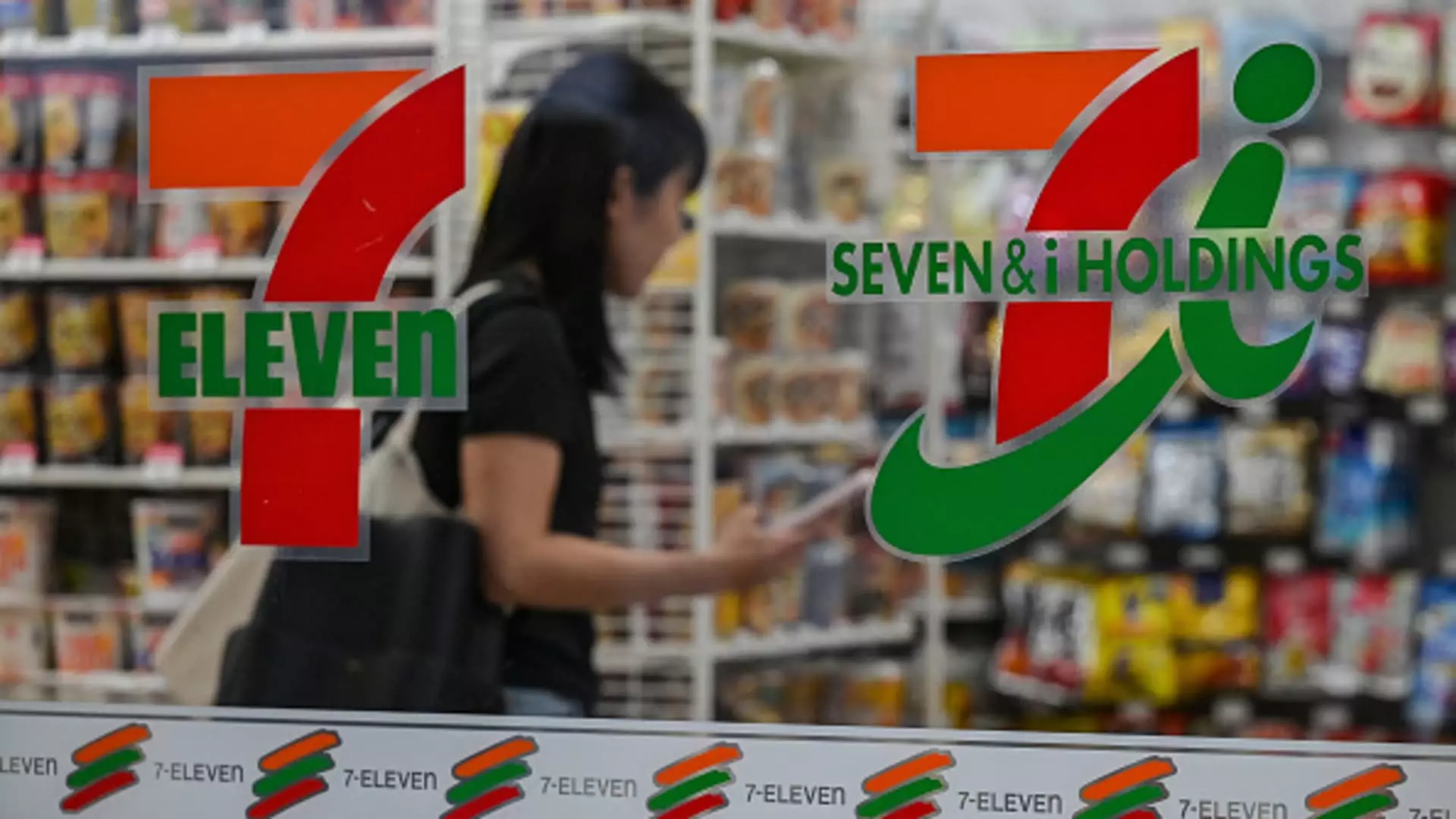Seven & i Holdings, the Japanese convenience retail powerhouse known for its iconic 7-Eleven stores, is currently navigating turbulent waters. Recent announcements regarding slashed profit forecasts and significant restructuring plans highlight the challenges the company faces in a competitive market. This article dissects the factors behind these shifting fortunes, including changes in customer behavior, external acquisition pressures, and strategic redefinitions.
Seven & i Holdings made headlines when it significantly revised its profit forecast for the fiscal year ending February 2025. Originally projecting a net income of 293 billion yen ($1.94 billion), the company now anticipates a much more modest figure of 163 billion yen ($1.09 billion), representing a staggering 44.4% reduction. Such drastic adjustments reflect not only the company’s underperformance in profitability but also an unsettling trend in consumer spending behavior.
While revenues surged to 6.04 trillion yen, driven by increased foot traffic and higher sales at its stores, the profit margins fell short of expectations, underscoring a growing disparity between sales volume and profitability. Notably, this downturn is exacerbated by a perceived shift in consumer behavior, particularly among international customers, who have altered their shopping habits to adopt a more cautious approach in spending. The implications of this shift cast a long shadow over the company’s operational strategies.
In response to its whit development of cash flow management and the need for clear operational focus, Seven & i announced plans to spin off its non-core businesses into a separate subsidiary. This strategic restructuring aims to consolidate a total of 31 units, including Ito-Yokado Online Supermarket, which recently incurred a substantial charge of 45.88 billion yen due to this separation process. The necessity for this spin-off flows from increased investor pressure to declutter its business portfolio and improve shareholder value.
Moreover, it is crucial for Seven & i to streamline its operations to maintain competitiveness. By establishing an intermediate holding company to oversee various segments, including its supermarket and specialty stores, the retailer seeks to concentrate resources on its most profitable divisions while mitigating exposure to slower-growth areas.
As Seven & i navigates its internal challenges, it is also contending with external pressures, principally from Canadian firm Alimentation Couche-Tard (ACT), which has expressed interest in acquiring the Japanese retail giant. The dynamics of this potential acquisition illuminate the complexities of modern corporate governance and market competitiveness in Japan. Following a rejected initial bid of $14.86 per share, ACT reportedly raised its offer to $18.19 per share, valuing Seven & i at a whopping 7 trillion yen.
The prospect of a foreign takeover ignites discussions around national security and corporate integrity—issues that have led Japan to impose rigorous reviews on foreign investments. Following the proposal, Seven & i secured a designation as a “core business,” imposing barriers to foreign acquisition attempts. The protective measures under Japan’s Foreign Exchange and Foreign Trade Act mandate that any foreign entity seeking to acquire a stake of 1% or more be subject to thorough government scrutiny.
As the negotiations unfold, the possibility looms for ACT’s bid to turn hostile—a scenario in which the acquiring entity seeks to gain control against the wishes of the target company’s management. Observers like Nicholas Smith of CLSA warn that recent trends involving hostile takeovers in Japan, coupled with opaque legal structures, could lead to turbulent outcomes. However, others, such as Jamie Halse of Senjin Capital, contend that actual hostile takeovers remain improbable due to the financing challenges banks may face.
Regardless of the method, the growing tensions between Seven & i and ACT could strain shareholder sentiments. With shares soaring over 33% since the acquisition news broke, it appears investors are keenly attuned to the underlying dynamics at play. Jesper Koll of Monex Group pointed out that the revised bid highlights ACT’s commitment, signaling potential shifts in control that may ultimately redefine the retail landscape.
Seven & i Holdings stands at a critical juncture, balancing internal restructuring efforts against the backdrop of external acquisition pressures. With consumer behavior altering rapidly and competitive market conditions evolving, the company must deftly navigate these challenges to safeguard its position as a retail leader. The decisions made in the coming months will not only impact its profitability and operational viability but could also reshape the broader retail environment in Japan. As shareholders remain watchful and anxious over the company’s strategic course, the unfolding drama offers rich insights into the intersection of corporate governance and consumer economics in one of the world’s most competitive retail landscapes.


Leave a Reply